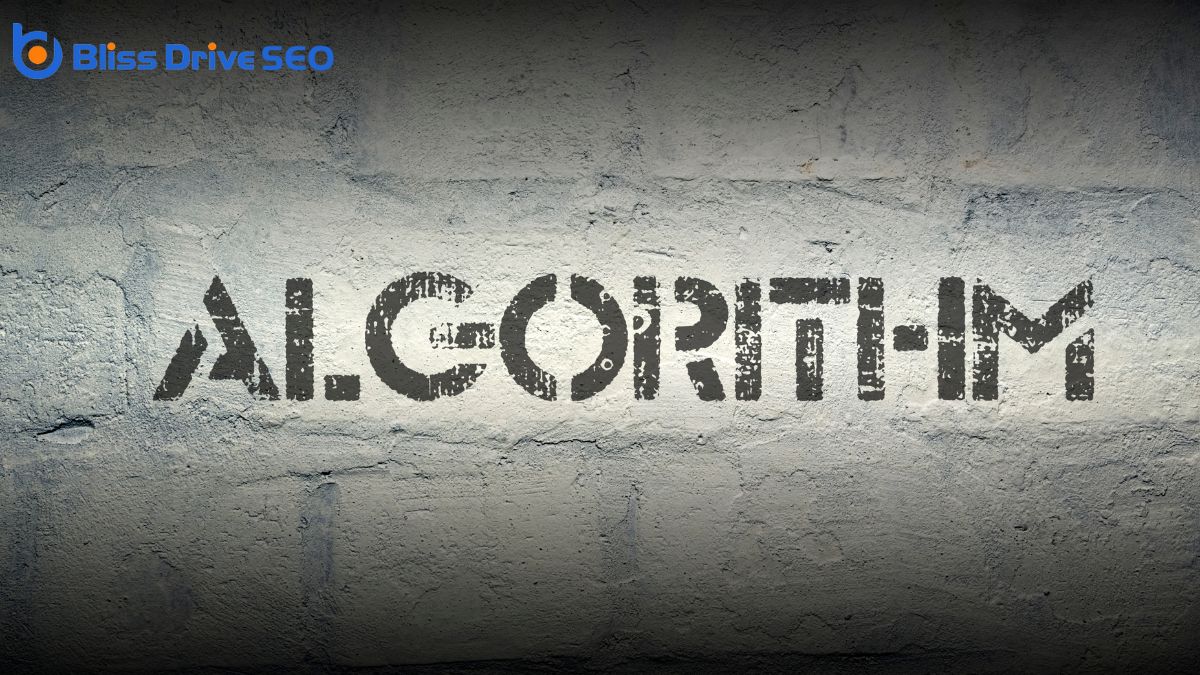Digital Marketing Services
Learn More About Us

You might wonder if juggling keywordsWords or phrases that users type into search engines to find information., analyticsThe systematic computational analysis of data or statistics to gain insights and support decision-ma..., and ever-changing algorithms makes an SEO job stressful. You're constantly adapting to Google's whims and balancing multiple client demands. Time seems to slip through your fingers as deadlines loom and the pressure to produce tangible results mounts. Yet, there's more to this story than just stress. What if there's a way to master these challenges and even find satisfaction in the chaos? Before you decide if SEO is a stress-inducing career, consider how professionals manage to thrive amidst the demands.
When you involve yourself in the realm of SEO, you'll quickly realize it's not just about keywords and rankingsThe position at which a website appears in the SERP.. Sure, those are crucial elements, but understanding SEO responsibilities requires a broader perspective. You need to optimize the entire digital presence of a site, making sure it aligns with user intent and search engine guidelines.
This means you'll delve into technical aspects like site architecture and page speedThe time it takes for a webpage to load, affecting user experience and conversion rates., which influence how search engines crawl and index your pages.
Your role also encompasses content strategyA plan for creating, publishing, and managing content to meet business goals.. It's not enough to write engaging content; it must be strategically crafted to meet user needs and answer their queries. You'll analyze data, track performance, and adjust tactics to enhance visibility and engagementThe interactions that users have with a brand’s content on social media..
Link buildingThe process of acquiring backlinks from other websites. is another pivotal responsibility. You should focus on acquiring high-quality backlinksLinks from other websites pointing to your website, crucial for SEO. from reputable sources, boosting your site's authority and trustworthiness.
Moreover, you'll need to stay informed about emerging trends and tools. SEO is an ever-evolving field, and staying updated ensures your strategies remain effective. Communication plays a significant part, too, as you'll often collaborate with developers, designers, and content creators to implement your SEO strategies seamlessly.

While mastering SEO responsibilities, you'll inevitably face the challenge of handling algorithm changes. Search engines frequently update their algorithms to improve user experience, and these updates can have a significant impact on your SEO strategy. It's vital to stay informed and adapt quickly.
You'll need to keep an eye on industry news and follow reliable SEO blogs or forums to make sure you're up-to-date with the latest changes.
To navigate these shifts, focus on maintaining a flexible strategy. Emphasize quality content, user engagementThe level of interaction and involvement users have with social media content., and technical SEOOptimizing the server and website structure to improve search engine crawling and indexing. elements that align with core principles, which tend to remain constant despite algorithm shifts.
When a new update rolls out, analyze how it affects your site's performance. Use analytics toolsSoftware used to track and analyze website performance, user behavior, and marketing efforts. to pinpoint changes in traffic, rankings, or other key metrics.
Testing and tweaking your strategy is essential. Conduct A/B tests to identify what works best in the new landscape. Remember, it's not just about reacting to changes but anticipating them.
Building a network of SEO professionals can help. Engage in discussions and share insights to better understand the impacts of updates. By staying adaptable and well-informed, you can effectively manage the impact of algorithm changes.
Successfully managing client expectations is pivotal in the world of SEO. When you're working with clients, it's crucial to communicate clearly about what's achievable. Start by helping them understand that SEO is a long-term strategy, not an overnight fix. Explain how SEO works, highlighting the time it takes to see significant results. This sets a realistic timeline and helps them appreciate the process.
It's important to establish specific, measurable goals with your clients. Whether it's increasing organic trafficVisitors who come to a website through unpaid search engine results. or improving search rankings, having clear objectives keeps everyone on the same page.
Regular updates and reports are invaluable tools. They demonstrate progress, even when tangible results aren't immediately visible. These updates also offerThe specific product or service being promoted by affiliates. you the chance to adjust strategies based on data, keeping clients informed.
Transparency is key. Be upfront about potential challenges and any changes in search engine algorithms that could impact results. By fostering an atmosphere of trust, you reduce misunderstandings and potential stress.
Juggling multiple SEO projects simultaneously can be a challenging task. You've got to keep track of various deadlines, client expectations, and the specific goals of each project. It's easy to feel overwhelmed, but with the right strategies, you can manage your workload effectively. Prioritization becomes your best friend. Start by evaluating which projects need immediate attention and which ones have more flexible deadlines.
Here are a few tips to help you balance multiple projects:
Staying organized and proactive can alleviate much of the stress associated with managing multiple projects. Remember, it's important to periodically review your workload and adjust your strategies as needed. Balancing multiple SEO projects is a skill that improves over time, so don't be too hard on yourself if it's challenging at first.
Staying current with SEO trends is important for maintaining a competitive edge in the digital landscape. As an SEO professional, you know that search engines, especially Google, frequently update their algorithms, impacting how websites rank. These changes can be challenging to keep up with, but they're necessary for ensuring your strategies remain effective. You need to dedicate time to research and learn about the latest updates, best practices, and emerging tools.
One way to stay informed is by following industry leaders on social media, subscribing to SEO blogs, and participating in forums. Engaging in webinarsLive or recorded online presentations or seminars used to educate and engage an audience. and conferences can also provide valuable insights.
However, with the constant influx of information, it's easy to feel overwhelmed. The key is to filter out the noise and focus on trends that align with your goals and audience.
Networking with peers can also help you gain different perspectives on how to approach new trends. Sharing experiences and challenges can leadA potential customer referred by an affiliate who has shown interest in the product or service but h... to innovative solutions.
When you're analyzing performance metricsKey indicators used to measure the effectiveness of affiliate marketing efforts, such as clicks, con..., focusing on Key Performance Indicators (KPIs) is essential to understanding your SEO efforts.
You'll make data-driven decisions by closely monitoring traffic and conversionThe completion of a desired action by a referred user, such as making a purchase or filling out a fo... rates, ensuring your strategies are effective.
This process can be demanding, but mastering it is key to achieving successful outcomes in SEO.
Successfully navigating the world of SEO requires a sharp grasp of Key Performance Indicators (KPIs) that mirror your strategies' effectiveness. These metrics offer priceless insights into whether your efforts are hitting the mark or need adjusting. By concentrating on the appropriate KPIs, you can guarantee your SEO tasks are generating meaningful results rather than just going around in circles.
Consider the following vital KPIs:
Understanding these KPIs helps you make well-informed decisions that improve your SEO strategy. Bear in mind, though, that not all KPIs will carry the same significance for every project. It's essential to adjust your focus based on your specific goals and industry standards.
To excel in SEO, relying on data-driven decision-making is essential, as it allows you to analyze performance metrics effectively. When you assess data, you gain insights into what's working and what's not in your strategy. This helps you make informed decisions, adjust tactics, and ultimately improve your website's performance. You'll find that using tools like Google AnalyticsA web analytics service offered by Google that tracks and reports website traffic. or SEMrush can provide valuable data on user behavior, keyword success, and site performance.
Start by identifying key metrics such as bounce rate, organic traffic, and average session duration. These indicators reveal how users interact with your site. By examining these metrics, you'll understand which strategies to maintain and which to refine. Don't forget to set benchmarks—knowing where you started helps track progress.
Additionally, analyzing performance metrics requires you to stay objective. It's easy to get attached to certain tactics, but the data should guide your decisions. Embrace the numbers and let them lead you to better outcomes.
In analyzing performance metrics, both traffic and conversion rates serve as critical indicators of your SEO strategy's effectiveness. You need to keep a close eye on these numbers to comprehend how well your website is performing. Traffic tells you how many visitors are landing on your site, while conversion rates reveal how many of those visitors are taking desired actions, like making a purchase or signing up for a newsletter. Balancing these metrics can be quite challenging, but it's crucial for successful SEO.
When you're focusing on improving these metrics, consider the following:
Understanding these performance metrics can be stressful, but with meticulous analysis and strategic adjustments, you can enhance your SEO efforts and achieve your goals.
When working in SEO, the pressure of deadlines can feel relentless. You're constantly juggling multiple projects, each with its own timeline. Clients and stakeholders expect results yesterday, and you're often racing against the clock. This can feel overwhelming, especially when search engines update their algorithms without warning. You need to adapt quickly to make sure that strategies remain effective, all while keeping your projects on schedule.
Managing time effectively becomes essential. You might find yourself prioritizing tasks, setting mini-deadlines, and using tools to keep track of your progress. Even then, the unexpected can happen—like a sudden drop in rankings or a technical issue on a website.
These surprises can derail your carefully laid plans and push you to work late into the night. But it's not just about meeting deadlines; it's about maintaining quality and guaranteeing that the strategies implemented will yield long-term results.
You're not alone in this struggle. Many SEO professionals face this pressure, and it's important to communicate with your team and clients. Being transparent about timelines and potential challenges can help manage expectations and reduce stress. Balancing deadlines with the demand for quality is key.
Staying ahead in the SEO field demands continuous learning. You can't rely on outdated techniques because search engines, algorithms, and user behaviors evolve constantly. To keep up, you have to immerse yourself in a cycle of learning and unlearning. This necessity can be overwhelming, but it's essential for maintaining your competitive edge.
Consider the following aspects that highlight the need for ongoing learning in SEO:
You're not just learning for the sake of learning—you're ensuring that your skills remain relevant and effective. By embracing this mindset, you'll not only survive the constant changes but thrive in them, becoming a true asset in the SEO industry.

Achieving a healthy work-life balance in SEO can often feel hard to attain. The industry moves swiftly, and there's always something new to learn or optimize. You might find yourself responding to emails late at night or fine-tuning content over the weekend. It's easy to let work seep into your personal life, but it's essential to set boundaries. When you don't, burnout can slowly appear, impacting both your job performance and personal well-being.
To maintain balance, prioritize tasks and set clear work hours. Use tools like time-tracking apps to stay focused during work hours and make sure you're not overexerting yourself. Communicate your boundaries to your team, ensuring they understand when you're available and when you're offline. This clarity helps manage expectations and reduces the pressure to be constantly connected.
Don't forget to schedule breaks and time for activities you enjoy outside of work. Whether it's a stroll, reading, or spending time with loved ones, these moments recharge you and boost your productivity.
Balancing SEO demands with personal time isn't simple, but by setting boundaries and prioritizing self-care, you'll create a more sustainable work-life equilibrium.
In the world of SEO, you'll face stress from algorithm changes, client demands, and tight deadlines. However, by mastering time management, communicating clearly with clients, and prioritizing self-care, you can navigate these challenges effectively. Staying updated with trends and continuously learning will keep you ahead. Balancing multiple projects and analyzing performance metrics might seem overwhelming, but with the right approach, you can maintain a healthy work-life balance and thrive in the ever-evolving SEO landscape.
